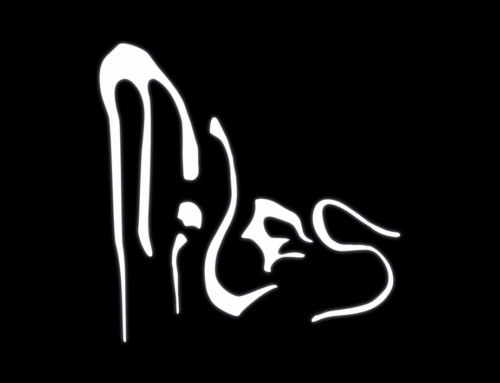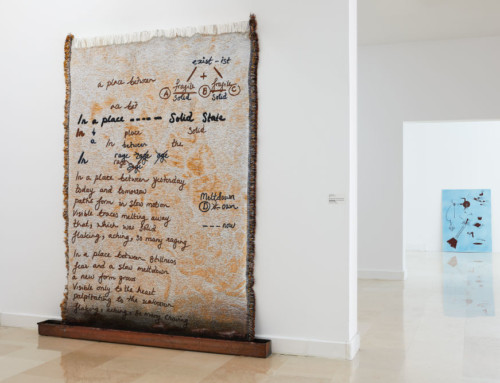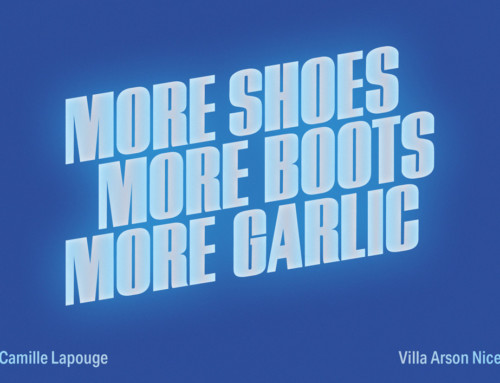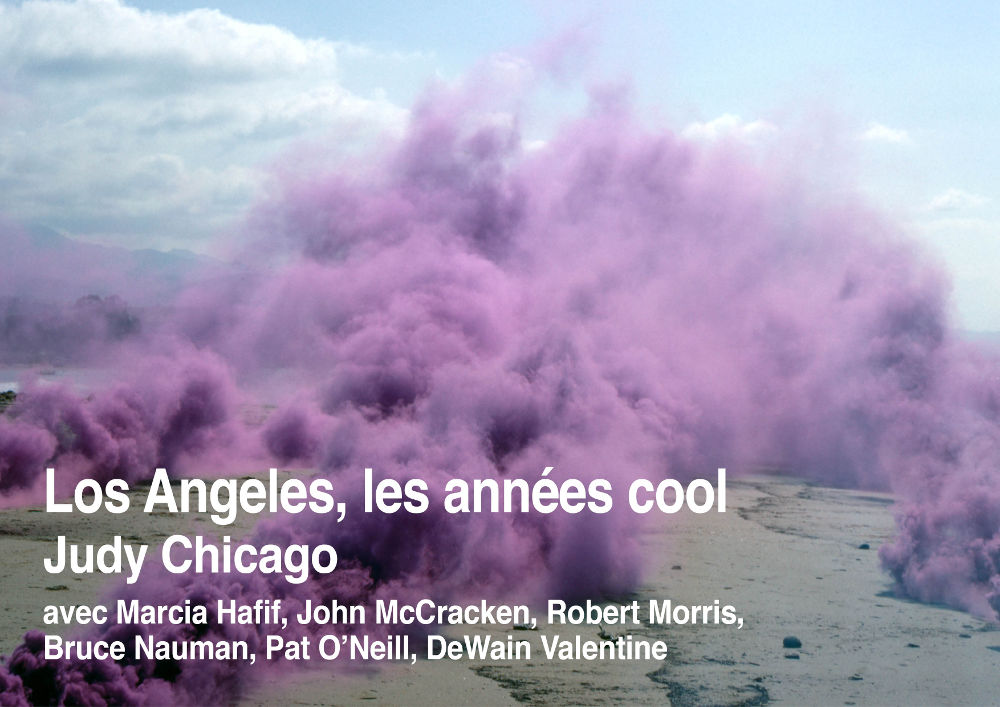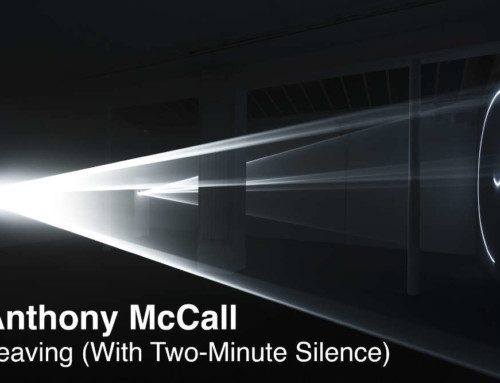A cycle of interviews on the theme of Transliteration
In parallel to Régions d’être exhibition by Slavs and Tatars, the Izolyatsia Foundation and the Villa Arson are producing and broadcasting a series of filmed interviews on the subject of translation and transliteration, entitled Translate Me Over a River, featuring eight leading international figures in the worlds of art and research. Slavs and Tatars’ questions are answered by the participants in English and subtitled in Ukrainian and French. The interviews, which last approximately fifteen minutes each will be broadcast every week during the time of the exhibition, on site both at the Villa Arson and at the Izolyatsia Foundation, as well as on the web pages of both venues.

The Izolyatsia Foundation is an independent platform supporting cultural initiatives and contemporary culture, housed in an old shipyard in the north of Kiev (Ukraine).
The exhibition of Slavs and Tatars and this cycle of interviews are labeled «Les Parallèles du Sud», in the framework of MANIFESTA 13.
………..
Watch the videos by selecting on viméo the subtitle language of your choice on the CC icon (English/ Français/ Ukrainian)

………..
![]() Watch the interview of Leah Feldman
Watch the interview of Leah Feldman
Leah Feldman is Assistant Professor of Comparative Literature at the University of Chicago. Her research explores the poetics and the politics of global literary and cultural entanglements, focusing critical approaches to translation theory, semiotics, Marxist aesthetics and decolonial theory, which traverse the Caucasus and Central Asia. Her book On the Threshold of Eurasia: Orientalism and Revolutionary Aesthetics in the Caucasus (Cornell 2018) exposes the ways in which the idea of a revolutionary Eurasia informed the interplay between orientalist and anti-imperial discourses in Russian and Azeri poetry and prose. Tracing translations and intertextual engagements across Russia, the Caucasus and western Europe, it offers an alternative vision of empire, modernity and anti-imperialism from the vantage point of cosmopolitan centers in the Russian empire and Soviet Union. She is currently writing on the rise of the New Right in late/post-Soviet Eurasia and a book tentatively titled Feeling Collapse on Soviet film, art and performance from Central Asia and the Caucasus amidst the collapsing sensorium of the Soviet Empire. Her work has appeared in Slavic Review, boundary 2, Ab Imperio, and Global South and she serves on the editorial collective for boundary 2.
+ d’infos : complit.uchicago.edu/faculty/feldman
………..
![]() Watch the interview of Alevtina Kakhidze
Watch the interview of Alevtina Kakhidze
Alevtina Kakhidze was born in 1973, Zhdanivka (Eastern Ukraine). Having lived in Kyiv and Muzychi (Central Ukraine) since 1995, with the exception of two years research term at the Jan Van Eyck Academy in Maastricht (2004-2006) she declares about her multi-level cultural identity; which includes parts of Ukrainian, Georgian and West European mentalities. She inherited Georgian surname from her father, and was raised within Russian culture, in its Soviet incarnation. The art practice of Kakhidze is based on personal experiences and imagination, talking about consumer culture, gender, love, culture of protest, experience of war, plants and everyday life, plants, and dogs. Kakhidze has been an active and visible supporter of Maidan movements during winter 2013-2014. Information war between Ukraine and Russia, West and East, together with her multivalent personal biography, formed the complex basis of her work for Manifesta 10 Where The Wild Things Are. In the summer of 2015, Alevtina Kakhidze researched The Soviet-Finnish War, also called The Winter War, to create a link to contemporary situations in Eastern Ukraine in the face of Russian armed encroachment. Her work was featured in numerous exhibitions at key galleries and museums, including the Ludwig Museum of Contemporary Art and the Museum of Contemporary Art, Zagreb.
More: http://www.alevtinakakhidze.com
………..
![]() Watch the interview of Michael Kurzwelly
Watch the interview of Michael Kurzwelly
Michael Kurzwelly was born in 1963. He is a performance artist who constantly crosses the border between Poland and Germany, but not only. He lives in the city of Słubfurt, which is a connection of Słubice and Frankfurt (Oder). In his projects, he deals with the issue of identity, borders, and strategies associated with them. Michael creates new structures of reality with the active participation of its residents, while at the same time he changes the interpretation of the space in which we move. Without looking at the territorial boundaries, he created a city with a functioning parliament, its own currency and culture.
More: https://de.wikipedia.org/wiki/Michael_Kurzwelly/
………..
![]() Watch the interview of Michael Kurzwelly
Watch the interview of Michael Kurzwelly
Borna Izadpanah is an Iranian typeface designer and researcher based in London. He holds an MA in Typeface Design from the University of Reading, UK (graduating with distinction) and an MA in Graphic Design from the London College of Communication. His MA dissertation at the University of Reading traced The typographic development of the Nasta’liq style, 1770s-2000. He is the designer of award-winning typefaces Lida and Lalezar. As a graphic designer, his work has been exhibited in venues such as The British Museum, The Royal College of Art, The Saatchi Gallery and Tehran Museum of Contemporary Art. He is currently undertaking a PhD research on The typographic representation of the Persian language at the University of Reading. This research project is supervised by Gerry Leonidas and Fiona Ross and funded by the Arts & Humanities Research Council under the auspices of the Design Star Doctoral Training Centre. Borna is a fellow of the Royal Asiatic Society and a member of the Atypl, the BIPS, the PHS and the TDC New York.
More: https://borna.co.uk/about.html
………..
![]() Watch the interview of Katja Petrowskaja
Watch the interview of Katja Petrowskaja
Katja Petrowskaja is a Kyiv born German prose writer and journalist. She studied literature and Slavonic studies in Estonia, received scholarships to further her education at Stanford University and Columbia and to do her doctorate in Moscow. She has lived in Berlin since 1999. Author of the book “Maybe Esther” which tells the story of the genocide of the Jewish population of Kyiv, culminating in the massacre of Babi Yar, through the account by Esther, who resembles her great-grandmother Esther, killed during the massacre. The book has been translated into more than 20 languages. For Katja, words are above everything. She writes in German, the language of the mute, as it is literally called in Russian. Perhaps it is precisely this language and the distance to Ukrainian and Russian that enable her, as she says herself, to unravel the painful fates of the people in her family.
More: https://en.wikipedia.org/wiki/Katja_Petrowskaja
………..

![]() Watch the interview of Stéphanie Marin
Watch the interview of Stéphanie Marin
Stéphanie Marin is a designer who lives and works in Nice. She began in 1990 in the textile recycling between Amsterdam, Hamburg and Barcelona. Five years later, she developed her line of prêt-à-porter «Habits Magiques» (magical clothes), multipurpose structures, natural materials and hand-crafted dyes, distributed in international brands of the fashion world. In 2003, she extended her research to Design and Housing, creates the pebble cushions Livingstones and founded smarin. For 15 years, smarin creates, develops and produces furniture design projects, scenographies and layout of spaces throughout the whole world. One of the particularities of smarin is its cross-cutting and creative approach – from design to production to distribution. Its creation process concentrates on the aesthetics of the creations, the materials used, and the adequate and efficient scale of production. Nowadays, her collections are distributed in more than 150 countries around the world, always in the sense of functional, healthy, and aesthetic research, indivisible to her choices of image production and distribution. https://www.smarin.net/
………..
![]() Watch the interview of Virginie Bobin
Watch the interview of Virginie Bobin
Virginie Bobin works at the crossroads between research, curatorial and editorial practices, pedagogy and translation. She strives to inscribe her work within a feminist ethics of care, friendship and collaboration. She is a candidate at the PhD-in-practice in Artistic Research at the Academy of Fine Arts in Vienna, where she studies the political and affective stakes of translation in trajectories of migration. In 2018, she co-founded with Victorine Grataloup the curatorial and editorial platform QALQALAH قلقلة. Between 2009 and 2018, she worked for Villa Vassilieff (a space for residencies and research that she co-founded in 2016), Bétonsalon – Center for Art and Research, Witte de With Center for Contemporary Art, Manifesta Journal, Les Laboratoires d’Aubervilliers and Performa. Leaving paid institutional positions allowed her to move to a rural area with her partner, their 3-year old daughter, a cat and two chicken.
https://qalqalah.org/en
![]() Watch the interview of Lia Dostleva
Watch the interview of Lia Dostleva
Lia Dostlieva was born in 1984, Donetsk, Ukraine. Artist, cultural anthropologist, essayist. Primary areas of her research include the issues of trauma, postmemory, commemorative practices, and agency and visibility of vulnerable groups. She is particularly interested in how trauma comes to language, in possibilities of representation of traumatic events, and in how “difficult knowledge” and “difficult past” could be described and visualised. As an artist, she has worked across a wide range of media including photography, installations, textile sculptures, interventions into urban space. More: http://www.liadostlieva.org










